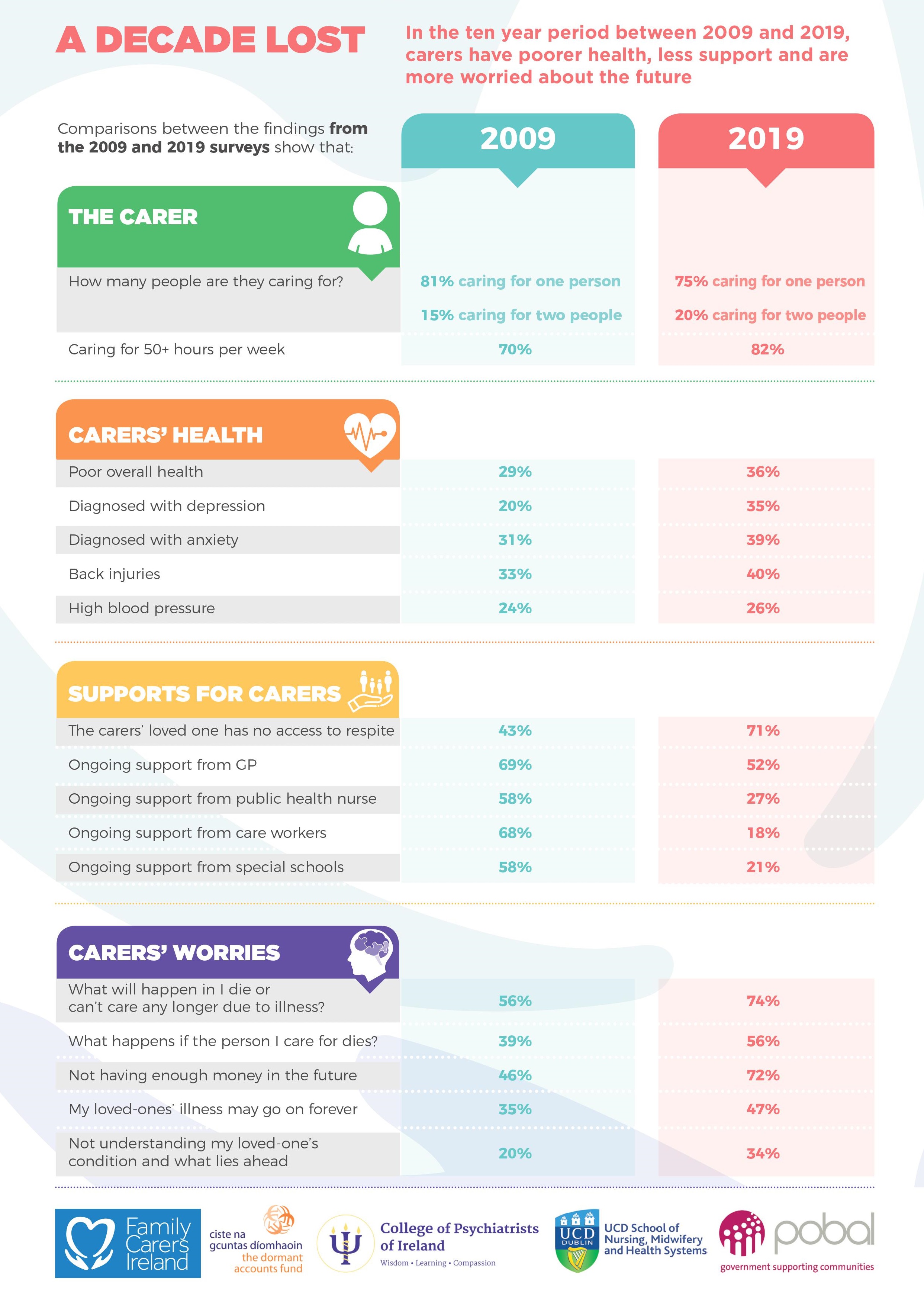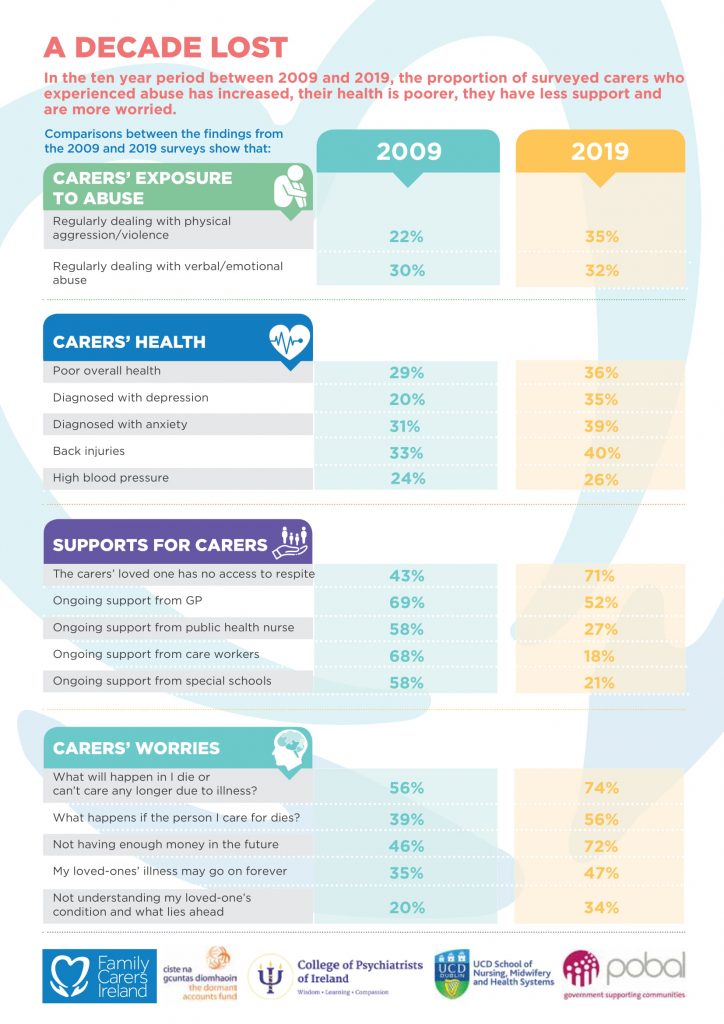Blog
Carers Week 2020 – Making Caring Visible
- June 1, 2020
- Posted by: ICP
- Category: College Papers, Submissions & Publications Of interest from media Public Information Stakeholders Uncategorized

With Covid-19 restrictions have come hugely negative consequences for the mental health of our already overwhelmed and overburdened family carer population. This Carers Week 2020 (8th – 14th June) we need to make all the more effort to advocate for supports for this vulnerable cohort of people. We need to make caring visible.
Usual family supports, access to respite, and social interaction with friends are just a few of the vital supports for family carers that have been majorly restricted during necessary, government-enforced precautions put in place to stop the spread of COVID-19 since mid-March this year. Acknowledging the burden and stress this will have caused to family carers and the increased negative effects on their mental health is now more important than ever.
It has been clear for some time that carers face significant damage to their own personal health and wellbeing whilst carrying out often unpaid caring roles. A series of 2019 reports themed “Paying the Price”, compiled by Family Carers Ireland (FCI) in collaboration with the College of Psychiatrists of Ireland and UCD School of Nursing, Midwifery and Health Systems showed that 1 in 3 carers have a diagnosis of depression, with a further 4 in 10 reporting a diagnosis of anxiety.
More recently, FCI carried out research assessing the impacts of the Covid-19 on the lives of Ireland’s 355,000+ family carers, with 60% of respondents reporting that they are worried about a decline in their mental health and with social isolation and lack of usual routines, 56% say that their loved ones are displaying increasingly challenging behaviours. You can read that report, titled “Caring Through Covid: Life in Lockdown“, in full here.
Discussing the findings, Catherine Cox, Head of Communications and Carer Engagement with Family Carers Ireland has said:
These findings highlight the need for total re-evaluation of how we care for the vulnerable in our society. Family carers have risen to the challenge of the Covid-19 crisis but at considerable cost to their own physical and mental health. A clear road map is needed to reinstate essential services and the statutory entitlement to homecare must become a reality. They are a priority group who have performed superbly in the crisis. It is time to minimise the financial burden of being a family carer and address their urgent needs, in particular their right to PPE and respite and to be recognised officially as a priority group who are part of the healthcare frontline.
Over all of these reports, it has been clearly demonstrated that family carers are expected to fill substantial and significant service gaps in health and social care systems, with estimated savings by the State of €10bn a year.
The “Paying the Price” series of reports can be read in full using the following links:
Phase One Report – Paying the Price: The Physical, Mental and Psychological Impact of Caring
Phase Two Report – Paying the Price: The Hidden Impacts of Caring


